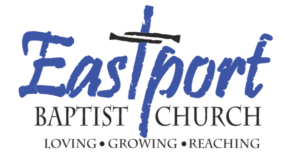
Read Together: 2 Chronicles 30:13–22
In 2 Chronicles 30:13–22, King Hezekiah leads the people in keeping the Feast of Unleavened Bread. Throughout the centuries, Israel had become lax in keeping the feasts (2 Chron 30:5). Under ungodly leadership, the people often failed to celebrate the Feast of Unleavened Bread on a yearly basis. Kings like Hezekiah’s father, Ahaz, had filled the land with sinful practices and idolatry.
Hezekiah, however, cleansed the land of these practices, restored worship in the temple, and sought to uproot idolatry from Judah. He sent out a call throughout all of Israel (including the northern under Assyrian control) to come to Jerusalem and celebrate the Feast of Unleavened Bread and the Passover. Many came, and despite their imperfect ritual purity, their hearts were pure. And the Lord accepted their imperfect celebration of the feast (30:18–20).
Though imperfect, this celebration under Hezekiah captured the heart of the Feast of Unleavened Bread. The people sought the Lord and gave thanks for all he had done. They renewed their commitment to the covenant and removed the real “leaven” from the nation, the idolatry and sinful practices that had taken over Judah.
Our King, Jesus, also leads us in a renewed celebration of the Feast of Unleavened Bread. We celebrate this festival truly, not with a seven-day festival, but with a daily renewal to trust in the true Passover Lamb, Jesus, and live as the holy people we truly are in him.
Discussion Questions
- What was the purpose of the Feast of Unleavened Bread?
- What does leaven symbolize in Scripture, and how does Hezekiah’s celebration of this feast connect to that symbolism?
- How does this feast point us to Jesus? How might we celebrate the true essence of this feast today?
Ideas for Younger Kids
· Read Exodus 13:3–10 with your children. Talk about how Israel celebrated different “holidays” than we do. The Feast of Unleavened Bread was one of them, a seven-day long holiday! Talk about what leaven is and what this feast was supposed to remind God’s people about (his salvation and the call to keep God’s Word and get rid of sin in our lives).
· Play the game Bedikat Chametz (Search of Leaven):
o Supplies: Candle (or flashlight), 10 pieces of leavened bread, feather, wooden spoon, paper bag, and fire.
o Hide the 10 pieces of bread throughout the house.
o Have your kids search with the candle/flashlight for the bread and say when they’ve found it: “Father, Father, we have found the leaven.”
o The father then comes and picks up the bread with the spoon and feather and puts it in the bag.
o When all the bread is found, burn the bag and everything in it outside.
o Discuss with your family what this symbolizes: by God’s grace, we seek to find and get rid of sin in our lives.
Memorization: “Let us therefore celebrate the festival, not with the old leaven, the leaven of malice and evil, but with the unleavened bread of sincerity and truth.” (1 Corinthians 5:8)
Song: Listen to “His Mercy Is More” (Shane & Shane). Praise God for his mercy that forgives our sins and frees us from the hold of sin!
Pray Together
- Praise God for his salvation in Christ!
- Confess before God that our lives are often taken over by “small” sins that spread quickly.
- Give thanks to God that Jesus is our Passover Lamb and Bread of Life and that in him we can be forgiven and live holy lives!
- Pray that God would open our eyes to areas of sin that we need uproot from our lives.
Go Together
- Take some time this week to take stock of your own life: are there any areas of your life where sin is spreading? Are there areas in your family life where sin is thriving? Take steps to uproot this sin from your life by confessing it to God and asking for his help to fight this sin, asking forgiveness from others (where applicable), and taking whatever practical steps necessary to prevent that sin in the future.
